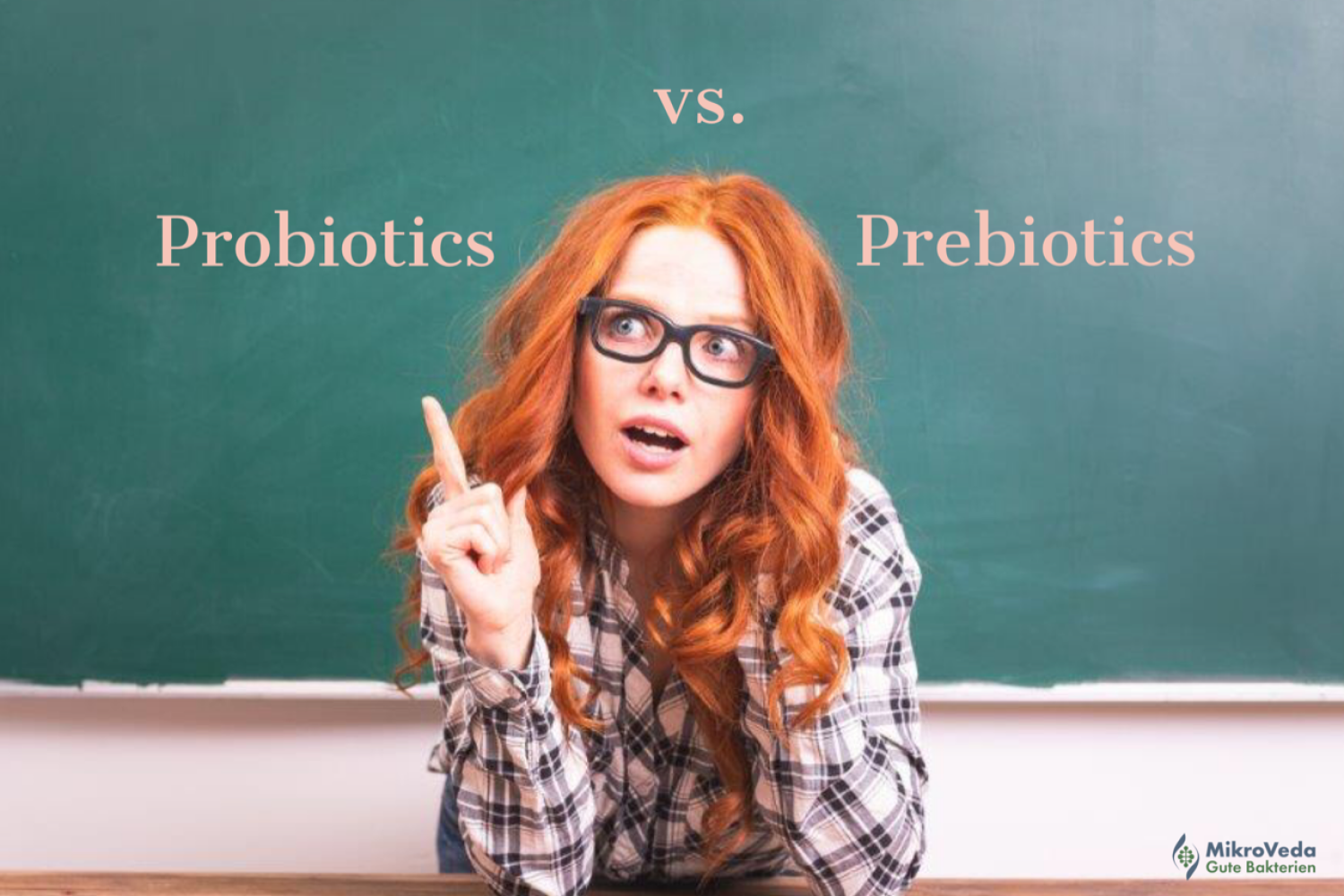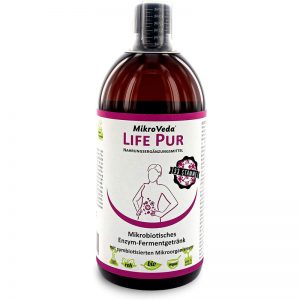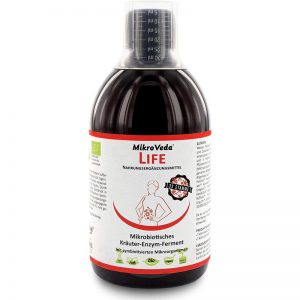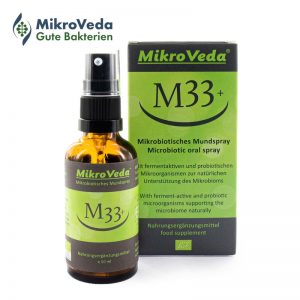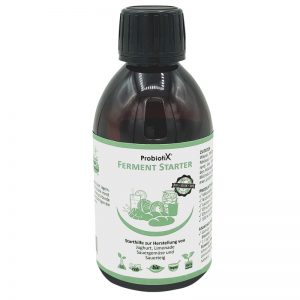Current knowledge teaches us in our everyday nutritional teachings that we should consume both pro- and prebiotics to support healthy digestive processes in our bodies. But what actually are they and, most importantly, what is the difference?
We’ll start with the “pro."
What are probiotics?
Probiotics are beneficial microorganisms, trillions of which are found in the gastrointestinal tract of a healthy person. Many different strains of probiotic microorganisms have different, but sometimes complementary, benefits. They work best in community, because only in community can they promote health. A balanced microbial complex is therefore of great importance for our microbiome. The so-called good bacteria protect our gut from potentially dangerous microorganisms that are also present in the gut, and they thus reduce the risk of disease or infection. Probiotics in the gut regulate our immune functions, which improves the positive response to dangerous infectious organisms. Likewise, they promote the function of the intestinal walls, strengthening their ability to act as a protective barrier to potentially dangerous chemicals and organisms.
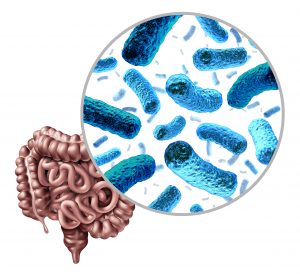
Are probiotics of natural origin?
Probiotics are usually found on the market as dietary supplements. These can have both synthetic and natural compositions. However, probiotics can also be ingested through natural raw materials. These are usually foods that have been created by fermentation, such as sauerkraut or yogurt. This is because fermentation in particular creates an environment of probiotic microorganisms. These microorganisms can also be found in food supplements. They are usually also produced by fermentation, but under controlled laboratory conditions. The “wild" fermentation at home carries risks of uncontrolled spread of unwanted pathogenic bacteria. So many people like to turn to probiotic supplements. These are found in the form of capsules, tablets, or liquid ferments.
The human microbiome is made up of about a thousand different species of bacteria – how do we know which species to supplement in the form of probiotics?
Out of the thousands of species of bacteria, science has identified which ones have a particularly “probiotic" effect in the human organism. So probiotic in this context means supporting important protective and digestive processes. Probiotic bacteria are particularly assertive and able to take over life-promoting functions in the community as well as to induce other bacteria to support them in these functions. Two bacterial species have been found to be of particular probiotic importance:
Lactobacillus strains and Bifidobacterium strains.
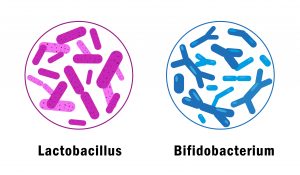
Does MikroVeda also offer probiotics?
MikroVeda offers with the MikroVeda Life, the MikroVeda Life Pur as well as the MikroVeda M33+ food supplements in liquid form, which are a perfect combination of beneficial microorganisms that enrich the human microbiome with good, communalized bacteria and support it to be able to effectively perform its natural functions in the body.
MikroVeda carries live liquid ferment beverages as a fermented and thus non-sterilized combination of many beneficial, naturally occurring strains of bacteria, including the strains mentioned above. MikroVeda rather names their liquid ferments as microorganism complexes, as their compositions go far beyond a probiotic containing the aforementioned strains. This is because, in addition to these probiotic microorganisms, MikroVeda’s ferment drinks contain other important ferment-active microorganisms and yeasts, which have proven to be particularly metabolically active in communitization. In addition, MikroVeda offers a ferment starter with equally probiotic and ferment-active microorganisms, which can be used to produce your very own ferment products at home, as a so-called starter probiotic. The ferment starter can be used to prepare yogurt and sourdough bread, as well as to lactic acidify vegetables or make probiotic lemonade.
What is the advantage of MikroVeda products?
MikroVeda works according to strictly natural principles and does not use any industrial processing of raw materials. Thus, we also rely on GMO-free and living, non-freeze-dried microorganisms from a balanced, stable environment. Our raw materials are from controlled organic cultivation and our final products are in raw food quality without any sterilization. These principles allow us to increase the likelihood of the highest possible bioavailability of our products.
What are prebiotics?
The word includes the prefix “pre", which means nothing more than “before". So it seems to be a biotic that should be “upstream". That’s exactly what it is. The good bacteria in the intestine, whether added as a dietary supplement or present in the intestine through natural nutrition, need good bacterial food and a foundation on which they can effectively multiply, just as a healthy organism needs.

Does every probiotic need a prebiotic?
The difference to the probiotic lies in its availability in nature. Prebiotics are found naturally in our daily food. They are found in various raw materials and the less processed our raw materials are, the more prebiotics are available to our bodies (examples: Chicory, onions, Jerusalem artichokes, garlic, salsify, artichokes and bananas). So we don’t need to buy a prebiotic with every supplement if we eat a balanced, whole food diet. However, if you have major nutritional difficulties, you can also use a prebiotic as a dietary supplement.
So-called synbiotics, which combine both prebiotics and probiotics in one preparation, can also be found on the market. However, according to our understanding, this combination cannot be equally sufficient for our complex organism, since a balanced microbiome needs more than a pill filled with a powder of freeze-dried bacteria and prebiotic carriers.
What are the functions of probiotics and prebiotics in the body?
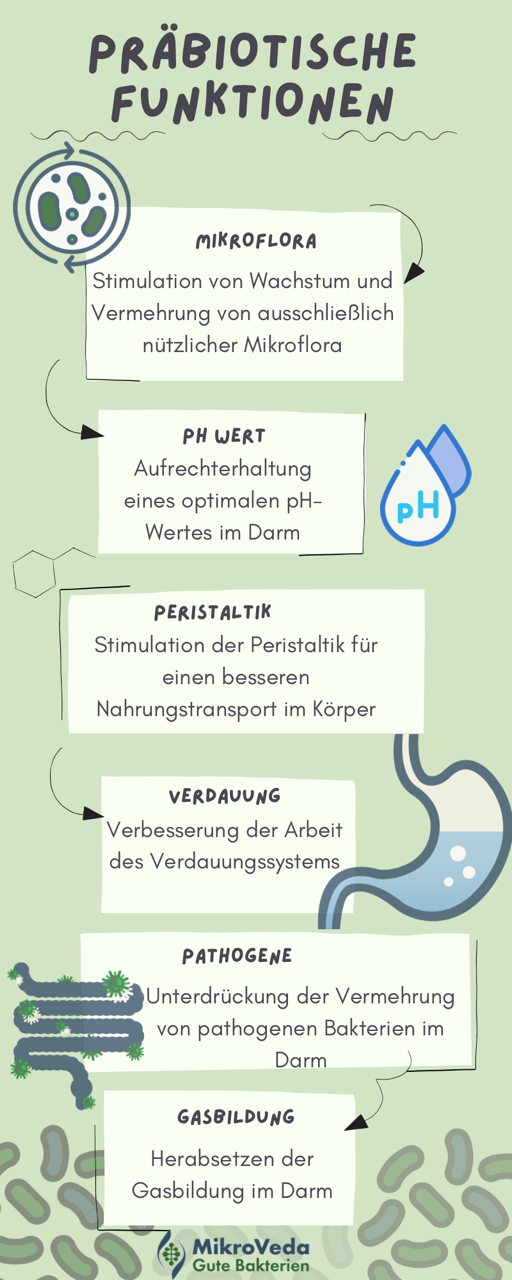
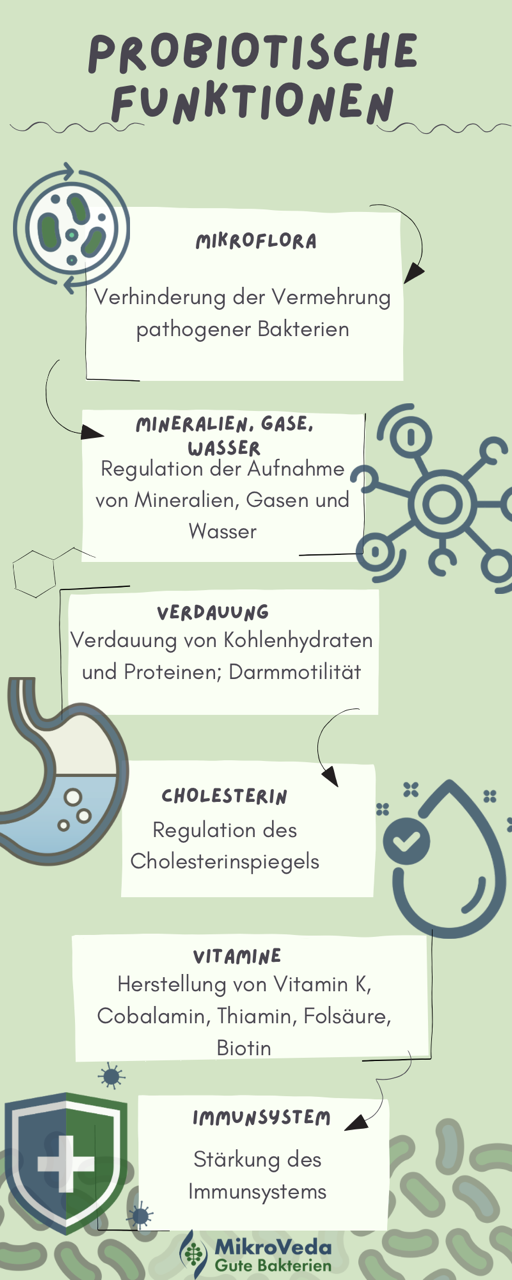
In addition to a balanced, whole food diet, for what ailments can probiotics support the microbiome?
– Constipation, diarrhea
– allergy
– Inflammations of the respiratory tract
– Inflammations of the digestive tract
– Weakened microbiome after antibiotic therapy
– fatigue, listlessness
– Flu-like infections
If you have persistent symptoms or suspect a serious illness, please talk to your doctor about your symptoms first. Dietary supplements do not replace medical treatment and no healing claims are made.
Briefly, in summary, what is the difference between probiotics and prebiotics?
Probiotics: Gut microbiome-building, beneficial microorganisms that occur naturally. Found in yogurt, kefir, sauerkraut and in dietary supplements.
Prebiotics: Short-chain sugar and protein molecules from food that are indigestible (dietary fiber) and serve as food for gut bacteria. This sounds like sugar and a tummy ache, but it is actually particularly valuable for our digestive processes.

